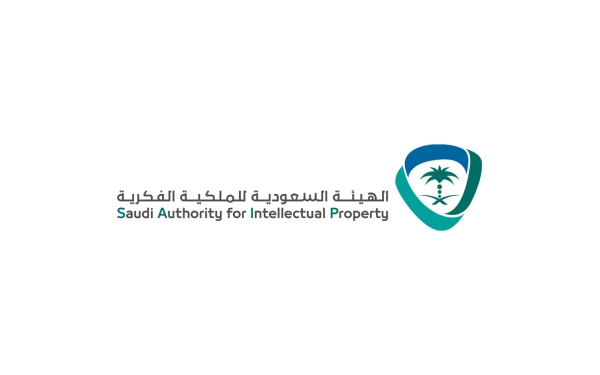


The Copyright Law in the Kingdom of Saudi Arabia is a set of rules and regulations governing the rights of any person who has created literary, scientific, or artistic work within the Kingdom. It was issued by Royal Decree in 2003, comprising twenty-eight articles. These rights remain protected for a period of fifty years after the death of the author. The provisions of the law apply to works of both Saudi and non-Saudi authors that are published, produced, performed, or displayed for the first time in the Kingdom.
Innovative works in the Copyright Law
The Copyright Law protects innovative works in literature, arts, and sciences, regardless of the type of these works, their method of expression, significance, or the purpose for which they were created. Examples include written materials such as books, booklets, and others, as well as orally delivered works like lectures, speeches, poems, songs, and similar creations.
The law also protects dramatic works, plays, shows, and other performances that are delivered through movement, sound, or both, along with works specifically prepared for broadcasting or presented through broadcasting. It further protects drawings, works of plastic arts, architecture, decorative arts, artistic embroidery, and the like, in addition to audio and audiovisual works.
Scope of protection in the Copyright Law
The provisions of this law apply to the works of Saudi and non-Saudi authors that are published, produced, performed, or displayed for the first time in the Kingdom and the works of Saudi authors that are published, produced, performed, or displayed for the first time outside the Kingdom.
The provisions also apply to the works of broadcasting organizations, producers of audio recordings, performers, and works protected under international agreements or treaties for copyright protection, to which the Kingdom is a party.
Works excluded from protection
Article Four of the Copyright Law indicates that the prescribed protection does not include laws, judicial judgments, decisions of administrative bodies, international agreements, and other official documents, as well as the official translations thereof, subject to the provisions concerning the circulation of these documents. It also excludes what is published in newspapers, magazines, and periodicals, or broadcasted in daily news or news-like events, as well as ideas, procedures, work methods, concepts of mathematical sciences, axioms, and abstract facts.
Moral and financial rights of the author
The Copyright Law grants the author a set of rights over their literary, artistic, or scientific creations, whether these are moral or financial rights, and they have a specific protection period according to the law. These rights include protection from unauthorized printing or publication, alteration, or translation of the work into other languages, as well as all forms of material exploitation of the work, such as licensing or leasing it to third parties. The author also has the right to attribute the work to themselves, object to any infringement on their work, and decide on the publication, modification, or withdrawal of the work from circulation.
Duration of copyright protection
The period of copyright for the author of a work is for the duration of his life and for a period of fifty years following his death. The period of copyright for joint works is computed from the date of the death of the last surviving author. The protection period for works where the author is a corporate entity, or if his name is unknown, is fifty years from the date of the first publication of the work. If the name of the author becomes known before the end of the fifty years, the duration of protection is the period specified.
The protection period for sound works, audiovisual works, films, collective works, and computer programs is fifty years from the date of the first public showing or publication of the work. The protection period for applied art (whether handcrafted or manufactured) and photographs is twenty-five years from the date of publication, while the protection period for broadcasting organizations is twenty years from the date of the first transmission of programs or broadcast materials.
Liability for copyright infringement
Any person who commits one of the violations mentioned in the law is considered to be infringing on the author's rights. Establishments are held responsible for any violations committed by their employees on any intellectual property if it is proven that the establishment was aware of or neglected the issue. This includes retaining counterfeit or copied computer programs, audio, or visual tapes, conducting maintenance on an electronic device containing counterfeit or decoded software, or similar acts.
It is also considered an infringement of copyright and a violation of the law and its regulations to reproduce protected works, sell them, import, export, transport, publish, or rent them without permission.
Traditional heritage (Folklore)
Saudi traditional heritage (folklore) is considered public property of the state, and no one is permitted to make any development or modification to it without prior approval from the authority. Saudi folklore includes any expression that reflects the traditional folklore that originated or continued in the Kingdom. In particular, it encompasses popular expressions such as stories, riddles, puzzles, and folk poems, among other similar cultural legacies.
Folklore also includes musical expressions such as anthems, songs, and chants, whether recited or accompanied by music, as well as kinetic expressions like folk dances, art forms, and performances during festive events. Additionally, tangible expressions such as calligraphic drawings, color paintings, engravings, sculptures, ceramics, and products made of wood, iron, and other materials, or decorated with various artistic embellishments like carvings, embroidery, hand-woven bags, needlework, carpets, and clothing, are also part of folklore.
Transfer of copyright ownership
According to Article Eleven, the author’s rights stipulated in this law are transferable in whole or in part, either through inheritance or legal disposal, which must be documented in writing and clearly specify the scope of the transferred right in terms of time and place. The rights provided by this law also pass to the author’s heirs, with the exception of performing any modification or deletion of the work. If the author has instructed that publication be prevented or has set a date for publication, their will must be respected within its limits. Additionally, if the work was a single-author creation and the author has passed away, or if it was a joint work and one of the authors has passed away without heirs, the share of the deceased author passes to those entitled to it according to Islamic law.
Violations in the Copyright Law
Article Twenty-One of the Copyright Law outlines several actions that are considered infringements of the rights protected by the law, including publishing a work that the publisher does not own, claiming ownership of the work, or publishing it without written authorization or contract from the author, their heirs, or representatives. It also includes modifying the content, nature, subject, or title of the work without the author’s prior written consent, whether the publisher, producer, distributor, or others make this modification. Additionally, reproducing the work without prior written consent from the copyright holder or without the proper documentation authorizing reprinting, and removing any written or electronic information that could lead to the forfeiture of the copyright, are also considered violations.
Infringements also include: removing or disabling any electronic protective information that ensures the use of original copies of the work, such as encryption or information recorded by laser or other means; the commercial exploitation of intellectual works through deceptive methods not authorized by the copyright holder, such as using pirated software or illegally intercepting encrypted broadcast programs. Additionally, the manufacturing or importing of tools for sale or rental that facilitate the reception or exploitation of works in ways not authorized by the copyright holder, as well as copying or photographing parts of a book, a collection of books, or any work, with or without compensation, without obtaining written consent from the copyright holders and relevant entities in the ministry, except for cases of lawful copying specified in Article Fifteen of this law.
Other infringements include: Importing counterfeit, imitated, or copied works, retaining non-original works at a commercial establishment, warehouse, or any other facility under its control, whether directly or indirectly and under any pretense, and infringing on any of the protected rights stipulated in this law or violating any of its provisions.
Penalties in the Copyright Law
According to Article Twenty-Two, anyone who violates a provision of this law is subject to one or more of the following penalties: a warning, a fine not exceeding SAR250,000, closure of the violating establishment or the one that contributed to the infringement on the author's rights for a period not exceeding two months, confiscation of all copies of the work, as well as the materials intended or used to commit the infringement, and imprisonment for a period not exceeding six months. In the event of repeated infringement on the same or another work, the maximum limit of the penalty, fine, and closure may be doubled.
Related quizzes
Related articles

